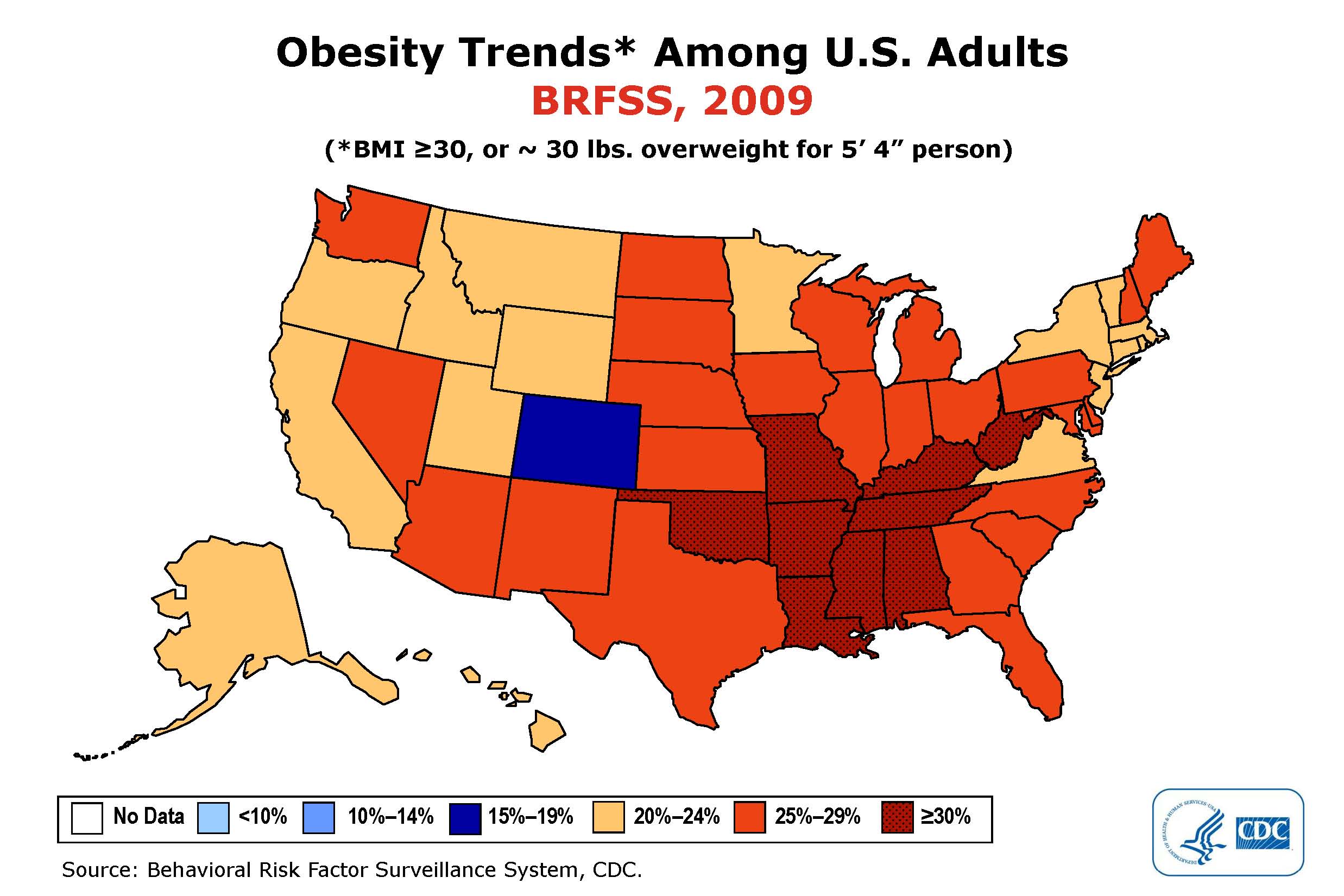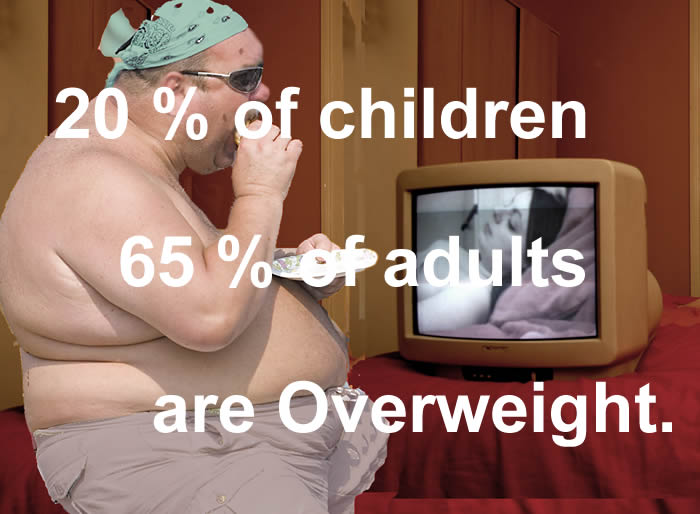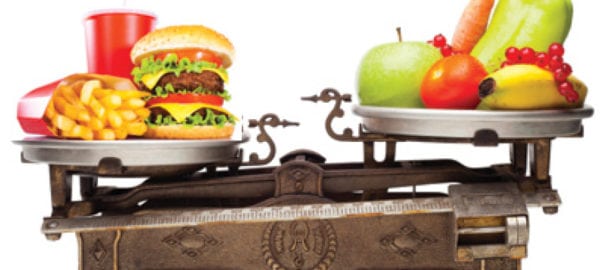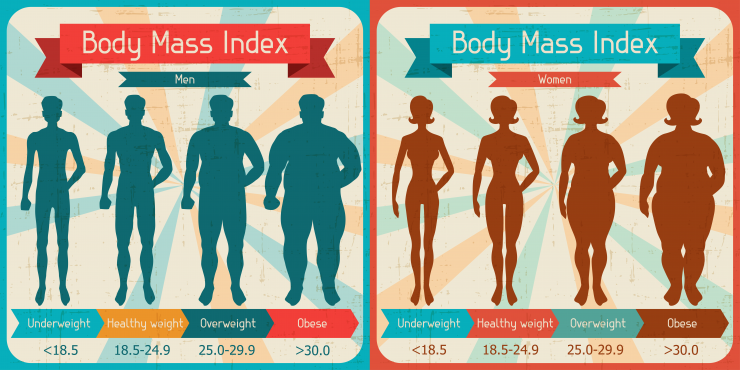Obesity in the United States places many at a crossroad between self-esteem and health. Often, larger frames are celebrated as more desirable. Other times, they are celebrated because we must learn to ‘love ourselves’, which is seemingly easier than laboring to diet and exercise. Of course, our culture embraces and contributes to obesity. Consider the ramifications of “As American as Apple Pie” or “Coke Adds Life” or the size of our favorite athletes in our most popular sport. Tomorrow we’ll discuss the calorie counts of soft drinks and desserts and their contributions to obesity. At the end of the day, we now have a culture that views what’s physiologically most healthy for our hearts as visually less desirable and a culture where one can ‘reasonably’ (i.e. based on evolved cultural norms) make the decision that having a permissive attitude toward obesity is a more desirable state of being than the pursuit of health.
Odds are, you’re overweight. It was a both a joke and a cause for celebration that Mexico just overtook the US as this hemisphere’s fattest country, but it did bring attention to the fact that more than one-third of U.S. adults (35.7%) are obese, and nearly two-thirds are overweight. Over the next three days, we’ll review various components of obesity that affect your health. To be clear, this is not about your perceived physical attractiveness (and while we’re at it, just because you’re slim, that doesn’t mean you’re anorexic). It’s about your health. If you’re sensitive about your size or have made an educated decision to ‘love yourself as you are’, you don’t have to read through this. If you’re at all interested in how your body is affected by weight, and if you can handle a little truth, proceed. As always, the goal is to educate and stimulate thought, discussion and action.
Let’s start today with making it clear what obesity is and who’s obese. Be reminded the heart is only a pump meant to move blood around the body, carrying oxygen and nutrients to cells in different parts of the body. The heavier you are, the more work your heart has to do and the more likely it becomes that this pump will not function ideally and will functionally ‘give out’ over time. It is this functional failure that produces many diseases.

Let’s start with Ideal Body Weight (IBW). For humans (not ‘Northerners’ or the ‘Small-Boned’ or the ‘Non-Athlete’ or ‘Women Who Haven’t Had Children’), the formula for calculating IBW is as follows:
Women: 100 lbs for the first 5 feet, then 5 lbs. for each additional inch.
Men: 100 lbs for the first 5 feet, then 6 lbs. for each additional inch.
Ideal body weight refers to health, especially heart health, not ‘grown and sexy’ or any other concocted notion of what looks good. So as an example, if you’re a 6 ft tall male, your IBW is 172 lbs. If you’re a female and 5’5”, your IBW is 125. Now before those of you ‘in the know’ tell me there are limitations to IBW and BMI considerations, I’ll stipulate the point and note that doesn’t change the point of this conversation one bit.
‘Overweight’ and ‘Obesity’ are about your risks for disease. We’ll talk about those risks tomorrow, but here are the definitions of each.
Being Overweight is defined as a body mass index (BMI) of 25 or higher; Obesity is defined as a BMI of 30 or higher. BMI gives you an indication if you’re over/underweight or at a healthy weight for your height.
If you’re interested in your BMI, use the following calculator:
http://www.nhlbi.nih.gov/guidelines/obesity/BMI/bmicalc.htm
Let’s talk about it. This is important for your health and longevity.
Feel free to ask your SMA expert consultant any questions you may have on this topic.
Order your copy of Dr. Sterling’s new book Behind The Curtain: A Peek at Life from within the ER at jeffreysterlingbooks.com, iTunes, Amazon, Barnes and Nobles and wherever books are sold.
Thanks for liking and following Straight, No Chaser! This public service provides a sample of what http://www.SterlingMedicalAdvice.com (SMA) and 844-SMA-TALK offers. Please share our page with your friends on WordPress, like us on Facebook @ SterlingMedicalAdvice.com and follow us on Twitter at @asksterlingmd.
Copyright © 2017 · Sterling Initiatives, LLC · Powered by WordPress



